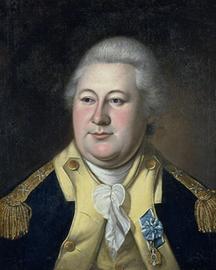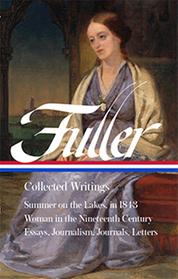The bells ring; the cannon rouse the echoes along the river shore; the boys sally forth with shouts and little flags, and crackers enough to frighten all the people they meet from sunrise to sunset. The orator is conning for the last time the speech in which he has vainly attempted to season with some new spice the yearly panegyric upon our country; its happiness and glory; the audience is putting on its best bib and tucker, and its blandest expression to listen.
--Margaret Fuller, "Fourth of July" (New-York Daily Tribune, July 4, 1845)

|
|
| At Petunia's Place Bookstore, Fresno, Calif. | |
I'm not really a Fourth of July Weekend kind of guy. I mean, I'll take the extra day off, but I don't like fireworks (we have two noise-sensitive cats), parades, and--big confession--picnics. I know, there's a deeper meaning to the Independence Day festivities, but for me it's more a day of reflection than celebration.
Now obviously I love the word independent, as do you, I'm sure. We hold that truth to be self-evident. An independent bookstore or publisher is not just a concept or a blind hope; it's a statement. Okay, a declaration. Since entering the book trade in 1992, how many times have I said or written that word? Every day? According to my quick calculations, that would add up to more than 12,000 days of independent as mantra.
If there is one aspect of Independence Day that does pop into my brain every year, it's remembering America's great bookseller Henry Knox. As far back as 2007, I wrote about him in a July 4 column. In his book 1776, David McCullough noted that Knox was Boston-born (1750) and self-educated. He "became a bookseller, eventually opening his own London Book Store on Cornhill Street, offering 'a large and very elegant assortment' of the latest books and magazines from London." Although the store was not especially prosperous, it became "a great resort for British officers and Tory ladies," along with troublemakers like John Adams and Nathanael Greene.

|
|
| Henry Knox by Charles Willson Peale, about 1784 | |
Knox went on to become a Revolutionary War hero in the Continental Army, playing an instrumental role when he conceived and executed the daring relocation of more than 50 mortars and cannons overland from Fort Ticonderoga on Lake Champlain to Boston, an arduous journey of nearly 300 miles that became a turning point in the war. His trip took place during winter months, so it's not a perfect fit with July 4 reflections, but he also passed by not far from where I live in upstate New York, so I feel some measure of kinship with the bookseller's heroic tale.
While looking for that first Independence Day column, I realized that over the nearly 20 years I have been doing this, I've often ignored Fourth of July as a bookish topic. A quick search of the archives revealed only a few instances when the holiday weekend popped up like a historical marker on the highway.
In 2008, I considered a couple of word cousins for indie bookstores: dependent and interdependent. Although we lean fiercely on independent, "we are also charter members of many diverse and ever-changing communities, as exemplified by our oddly complementary recent impulses toward social networking online and shopping local on-ground.
"For a long time I thought we should give equal weight to the word 'dependent' when talking about bookshops because we rely so heavily on the kindness, cooperation and generosity of, if not strangers, then certainly of all those equally independent consumers who choose to enter independent bookstores. That's such an amazing impulse, a declaration on their part that we matter to them; that we depend upon one another."
I didn't write about the Fourth again until 2020, when the Covid epidemic prompted a column headlined, "Celebrate Your Freedom to Wear a Face Mask," in which I asked: "How does an independent bookseller celebrate Independence Day during a global pandemic? By masking up and handselling great reads at the proper social distance, damn it!"
A year later, Independence Day prompted a return to the scene of the "don't make us sick" resistance movement with "The Last Word (Probably Not) on Face Masks" and this consideration: "Face mask rules keep changing, as do Covid-19 variants. People continue to be predictably unpredictable in their behavior patterns. Indie booksellers, as usual, must adapt to ever-changing circumstances."
 This Fourth of July weekend I'll continue reading two books that are focused upon independence in all its variations: the new Library of America edition of Margaret Fuller's Collected Writings, and Megan Marshall's 2013 biography Margaret Fuller: A New American Life (Mariner Books).
This Fourth of July weekend I'll continue reading two books that are focused upon independence in all its variations: the new Library of America edition of Margaret Fuller's Collected Writings, and Megan Marshall's 2013 biography Margaret Fuller: A New American Life (Mariner Books).
In "Fourth of July," Fuller wrote: "And yet, no heart, we think, can beat to-day with one pulse of genuine, noble joy. Those who have obtained their selfish objects will not take especial pleasure in thinking of them to-day, while to unbiassed minds must come sad thoughts of national honor soiled in the eyes of other nations, of a great inheritance risked, if not forfeited.
"Much has been achieved in this country since the Declaration of Independence. America is rich and strong; she has shown great talent and energy; vast prospects of aggrandizement open before her. But the noble sentiment which she expressed in her early youth is tarnished; she has shown that righteousness is not her chief desire, and her name is no longer a watchword for the highest hopes to the rest of the world. She knows this, but takes it very easily; she feels that she is growing richer and more powerful, and that seems to suffice her."
Food for thought on this Independence Day Weekend.

